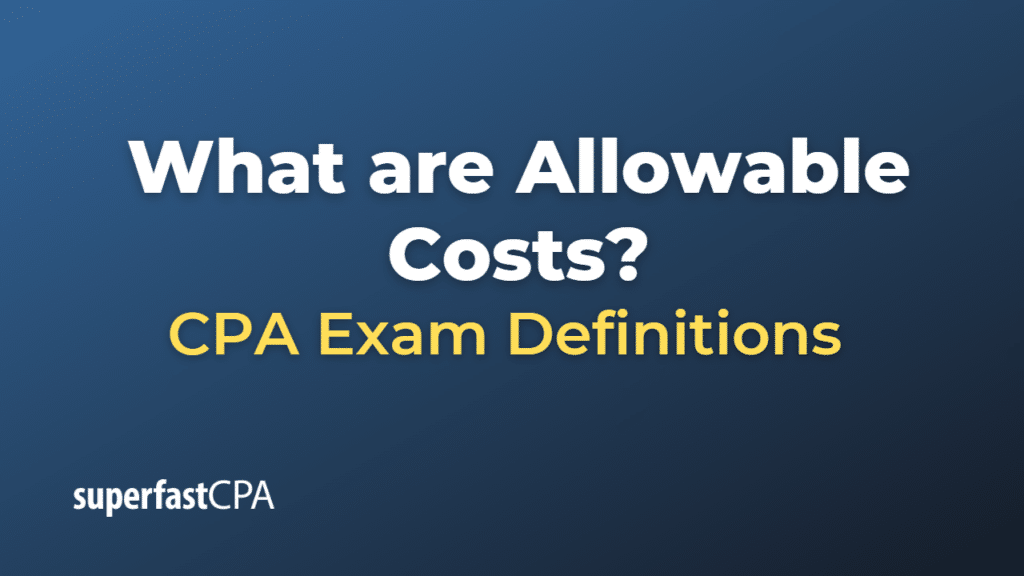Allowable Costs
Allowable costs refer to those expenses that are considered acceptable and eligible for reimbursement or inclusion in the financial accounting of a project, contract, or grant. Typically, allowable costs are defined by contractual agreements, government regulations, or grant terms and conditions. These costs must be reasonable, allocable, and necessary for the completion of the project or fulfilling the contract.
Some common examples of allowable costs include:
- Direct labor: Salaries and wages of employees directly involved in the project or contract.
- Direct materials: Raw materials, supplies, and equipment necessary for the project or contract.
- Indirect costs: Overhead expenses, such as rent, utilities, and administrative support, that are indirectly related to the project but necessary for its completion.
- Travel expenses: Costs incurred for transportation, lodging, and meals during project-related travel.
- Subcontractor costs: Payments made to subcontractors for their services in completing a portion of the project or contract.
It is essential to note that unallowable costs, such as entertainment expenses, lobbying activities, and fines or penalties, must not be included in the financial accounting of a project or charged to the contract or grant. Including unallowable costs can lead to financial penalties, disallowed reimbursements, or even termination of the contract or grant.
Example of Allowable Costs
Let’s consider a small software development company that has been awarded a government contract to create a custom software application. The terms and conditions of the contract outline the allowable costs that can be included in the project’s financial accounting and be eligible for reimbursement.
Examples of allowable costs for this project could include:
- Direct labor: Salaries of the software developers, project managers, and quality assurance engineers who are working directly on the project.
- Direct materials: Licenses for the software development tools, servers, and other equipment necessary to develop and test the custom application.
- Indirect costs: A portion of the rent and utility expenses for the office space where the project team is working, as well as administrative support staff costs.
- Travel expenses: Airfare, lodging, and meal expenses for the project manager to attend a meeting with the government agency to discuss the project’s progress and requirements.
- Subcontractor costs: Payment to a graphic design firm hired to create the user interface for the custom software application.
The company needs to ensure that it only includes these allowable costs in its financial accounting for the project and does not charge any unallowable expenses, such as entertainment costs or unrelated marketing expenses, to the contract. By doing so, the company can avoid potential financial penalties or contract termination.













